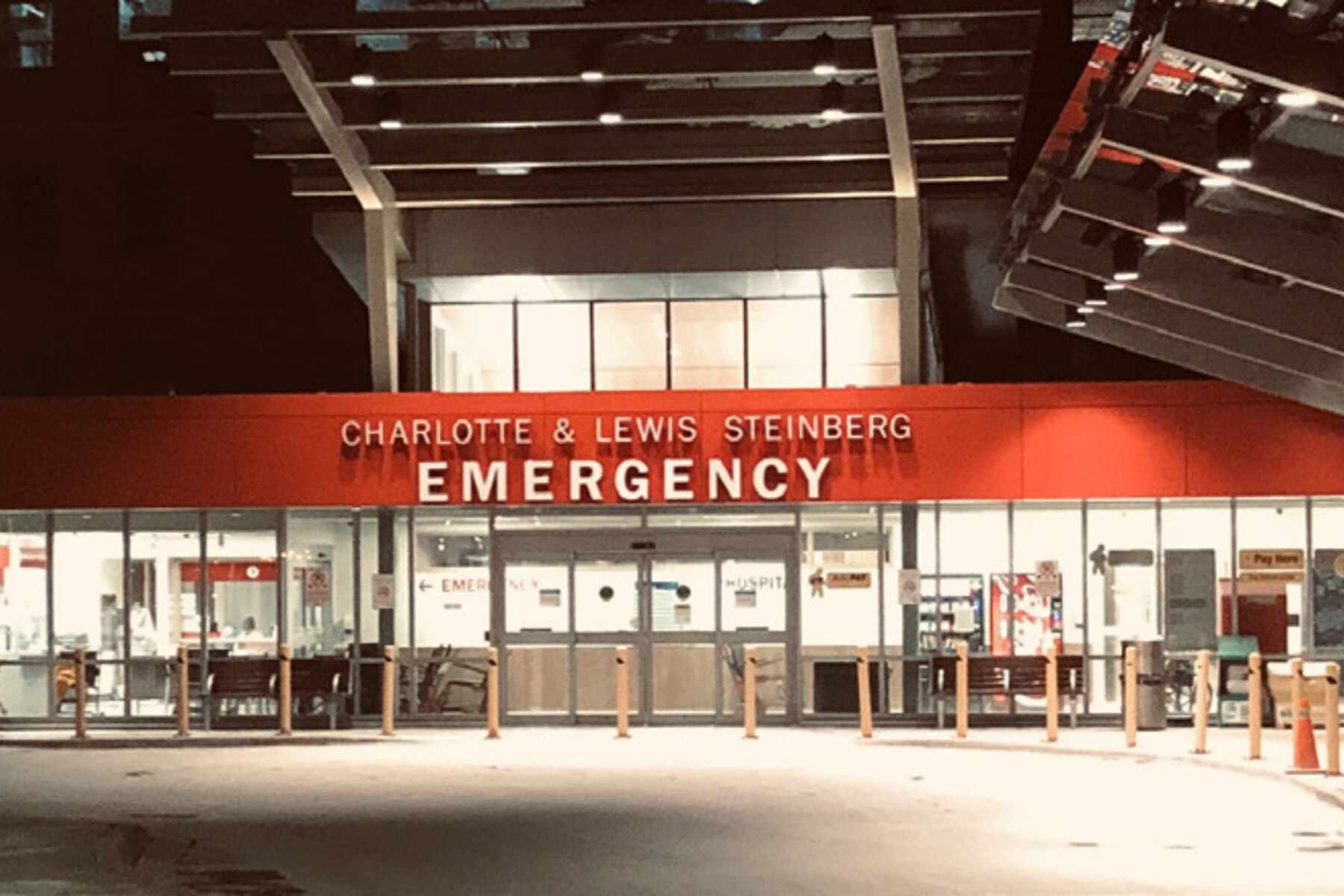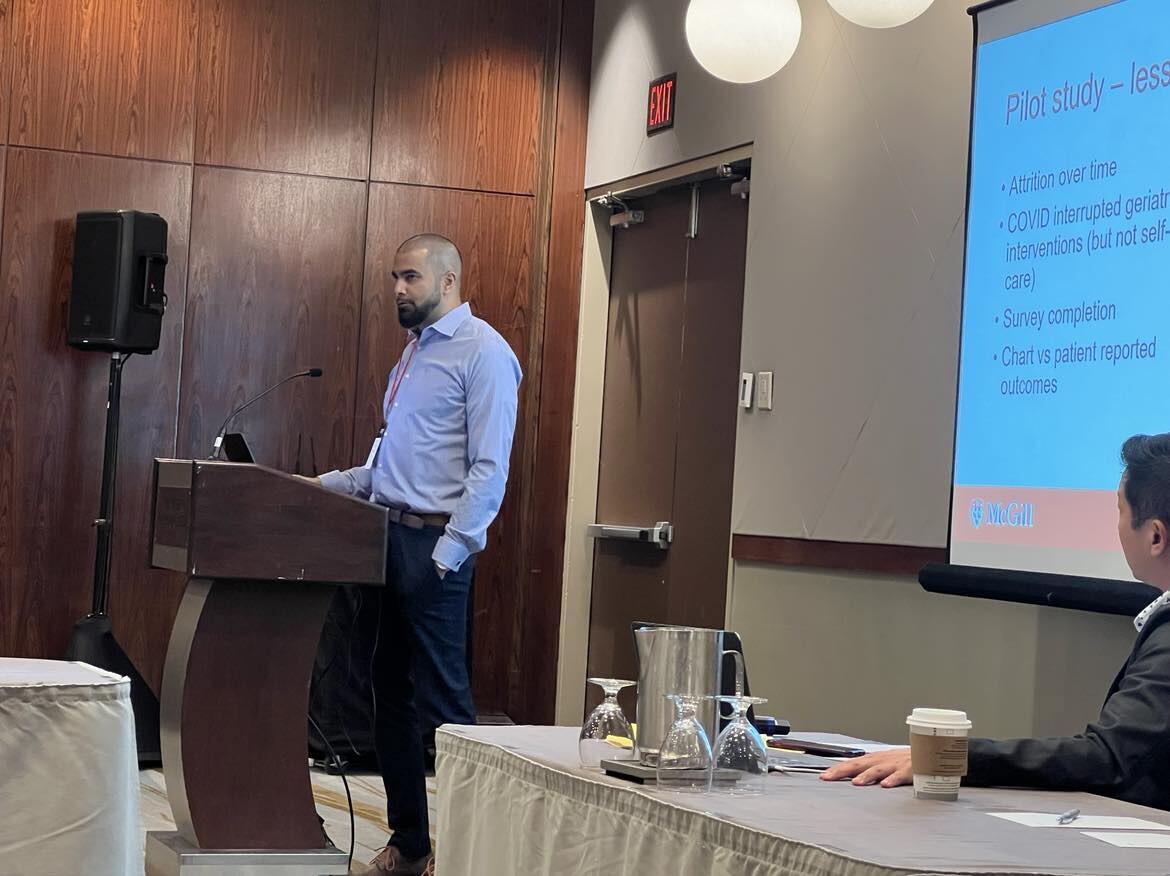Main Second Level Navigation
Breadcrumbs
- Home
- Research
- NYGH Research Lead | Dr. Mohindra
NYGH Research Lead
Dr. Rohit Mohindra

Using Machine Learning to Improve Asthma Diagnosis in the Emergency Department
Dr. Rohit Mohindra, Research Lead at North York General Hospital (NYGH) and SREMI Investigator, continues to advance cutting-edge research aimed at improving emergency care for some of the department’s most vulnerable patient populations, children with respiratory distress, individuals in mental health crisis, and patients suffering from opioid overdose and cardiac arrest.
Pediatric Asthma Diagnosis and Machine Learning
When children arrive to the ED with breathing difficulties, physicians must quickly determine whether they have asthma, often by listening for wheezing with a stethoscope. However, in a busy and often noisy ED, accurately diagnosing asthma can be challenging, particularly with young or unwell children who struggle to participate in the examination. Dr. Mohindra and his research team are exploring whether an electronic stethoscope, paired with computer-assisted analysis, can improve diagnostic accuracy for asthma.
In a recently completed pilot study, the team recruited 100 children and teens (ages 1-18) over eight weeks. Using an electronic stethoscope, they recorded breath sounds and followed up with families 30 days later to assess outcomes. The next phase will involve developing the computer program capable of analyzing breath sounds in real time to assist clinicians with faster, more precise asthma diagnoses. By harnessing machine learning, this approach could enhance diagnostic confidence, reduce unnecessary treatments, and lead to more timely interventions for children in respiratory distress. Importantly, the electronic stethoscope fits seamlessly into clinical workflows, requires no specialized training, and can be used by physicians, nurses, and allied health professionals at the bedside, demonstrating the practicality of AI-driven innovation in emergency care.
Mental Health Emergency Unit – The Purple Zone
Launched in March 2024, the Purple Zone, formally the Mental Health Emergency Services Unit, is a trauma-informed space embedded directly within the NYGH ED. The unit represents a major transformation in the delivery of mental health emergency care, replacing fragmented workflows with an integrated, interdisciplinary model that enables concurrent medical and psychiatric assessment starting at triage. In its first year, the Purple Zone cared for 2,205 patients, nearly half of whom were youth aged 13–29. Despite having only four beds, the unit managed one-third of all mental health visits to the ED and achieved shorter wait times compared to patients seen elsewhere in the department. The improved nurse-to-patient ratio and concurrent assessment process have enabled earlier intervention, stronger rapport-building, and safer, more compassionate care.
The team’s ongoing evaluation identified key barriers to sustained recovery, including substance use, housing instability, and lack of community supports, which have informed new initiatives. These include the introduction of a substance use support role in the ED and partnerships with local shelters to enhance continuity of care. In addition, Dr. Mohindra’s group is developing an AI-powered decision-support tool that leverages large language models to recommend the most appropriate community services for each patient, drawing on chart data and previous outcomes.
Opioid Overdose and Out-of-Hospital Cardiac Arrest
Dr. Mohindra also collaborates with the First60 Prehospital, Trauma, and Resuscitation Sciences group and the Ontario Coroner’s Office on research examining opioid-induced cardiac arrest. Uncertainties remain regarding naloxone use in cardiac arrest, its benefits, risks, optimal dosing, and administration routes. To address these questions, his team has developed a prehospital risk assessment tool to help paramedics and ED providers identify when a cardiac arrest is likely opioid-related. This work represents an important step toward improving outcomes for patients with opioid-related cardiac arrest and reducing preventable opioid deaths. The findings will also guide future studies on tailored interventions for this complex and growing patient population.
Through these innovative projects, Dr. Mohindra and his collaborators at SREMI and NYGH are advancing the future of emergency medicine, one that leverages technology, compassion, and evidence to deliver smarter, safer, and more effective care for every patient.


